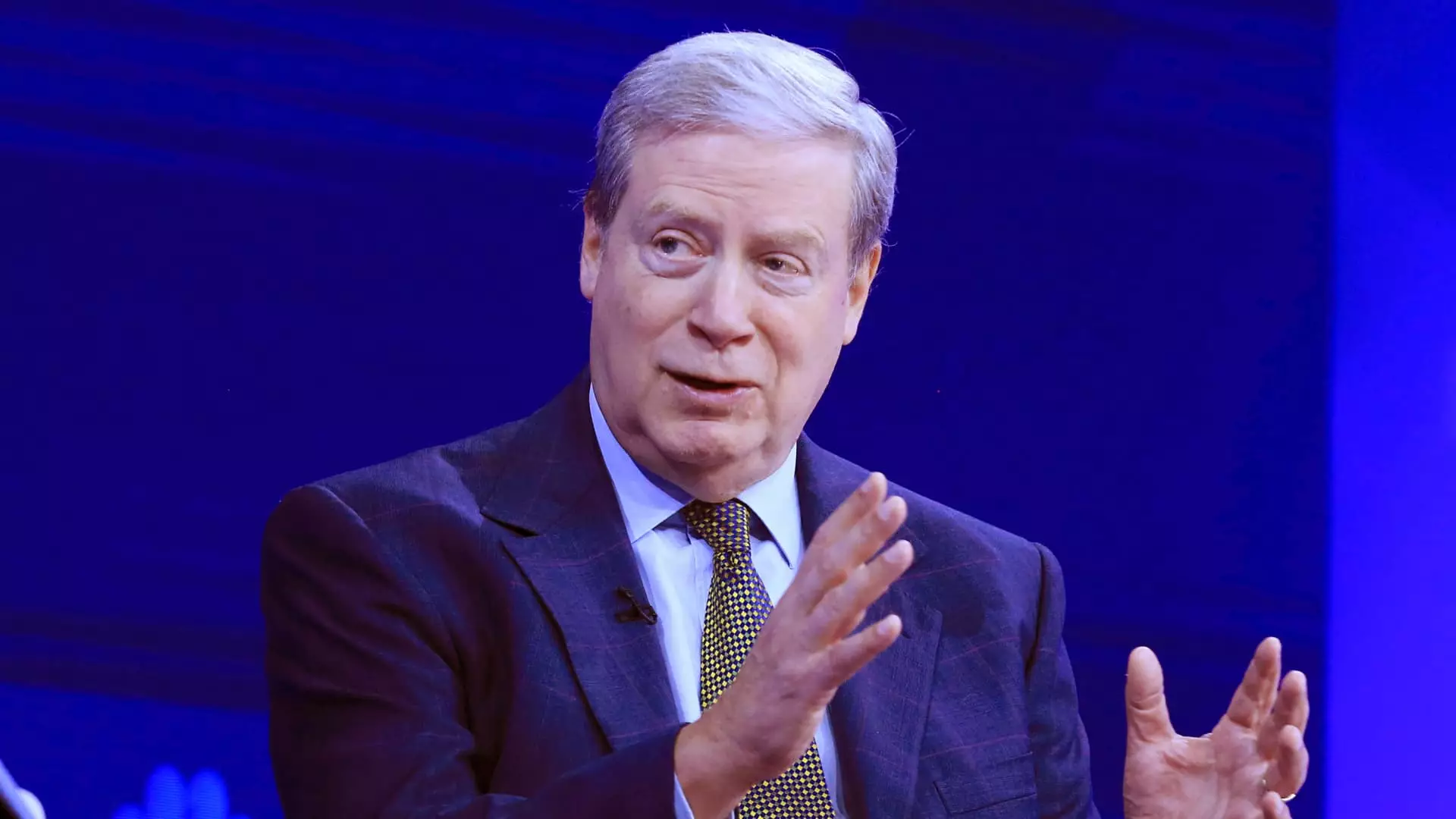In the world of finance, the sentiments of influential investors can set the tone for market dynamics. Legendary investor Stanley Druckenmiller recently shared his perspective on the economic climate in light of Donald Trump’s re-election. His assertion that there is a renewed sense of speculative enthusiasm in the market serves as a reflection of broader business optimism. However, beneath this optimism, Druckenmiller flags several complexities that could influence investor behavior moving forward.
Druckenmiller’s 49 years of experience in market investments offer him a broad perspective on economic cycles. He articulated a strong belief that the shift from “the most anti-business administration” to Trump’s presidency has sparked a significant change in corporate sentiment. Conversations with CEOs reveal a landscape where executives feel relieved and optimistic—a feeling Druckenmiller describes as being “somewhere between relieved and giddy.” Such qualitative insights suggest that policies promising tax cuts and deregulation have the potential to galvanize companies, pushing them towards expansion and innovation.
Yet, while there is palpable enthusiasm, the investor warns against blind optimism. He combines his outlook by emphasizing caution towards the stock market, emphasizing the current environment of high bond yields. This contradiction between a strong underlying economy and rising bond yields adds layers of complication that can leave investors feeling ambivalent. The interplay between economic indicators and market reactions is ripe for close observation, especially as rising yields signal potential headwinds for stock valuations.
While Druckenmiller is optimistic about the near-term economic outlook, he remains skeptical about the sustainability of this optimism as it might clash with rising bond yields. His position is effectively a hedge—holding a short position against Treasuries. This strategy reflects a belief that as the economy strengthens, the upward pressure on bond yields could lead to a contraction in the stock market, creating a challenging environment for investors who may be overly reliant on continued bullish sentiment.
The dynamics of this situation are complex; an accelerated economy usually warrants higher interest rates as central banks aim to counter inflation. Consequently, the prospect of rising yields could weigh heavily on equities, suggesting potential volatility ahead. Investors will need to keep a keen eye on how quickly the economy expands relative to the increase in bond yields—a delicate balance for market participants.
Sector-Specific Strategies
Druckenmiller’s strategy indicates a pivot towards individual stock selection rather than relying on broad market trends. He expresses particular interest in companies using artificial intelligence to enhance productivity and reduce operational costs. This focus on technology highlights a critical evolution in the market, where innovation plays a pivotal role in a company’s potential success.
Interestingly, while he holds this belief in AI stocks, Druckenmiller has also sold out of notable tech giants like Nvidia and Microsoft, sparking curiosity about his future moves. The tech sector remains a formidable player in the market, and his decision may imply a reassessment of perceived valuations in a rapidly shifting landscape.
Risks and Rewards of Trade Policies
Discussions surrounding tariffs pose another layer of complexity. Despite concerns that Trump’s trade policies could provoke retaliation and inflate costs, Druckenmiller sees tariffs primarily as a way to generate necessary revenue amidst fiscal challenges. He describes tariffs as a type of consumption tax largely borne by foreign entities. This perspective highlights a view that revenue generation can buffer fiscal woes, which is an angle not often taken in discussions about trade.
As Trump’s administration considers adjusting tariffs, Druckenmiller remains cautiously optimistic about potential rewards. His belief is that as long as tariff adjustments remain in a reasonable range, the associated risks are overblown. However, navigating international trade and the potential for retaliatory measures makes this a topic that investors must monitor closely.
Stanley Druckenmiller’s insights following Donald Trump’s victory encapsulate a blend of hope and caution. While a surge of optimism suggests a vibrant economic landscape, the nuances surrounding inflation, bond yields, and specific sector performance demand careful navigation. As the financial world looks to the future, messages of vigilance alongside enthusiasm could prove essential for investors seeking to thrive amidst uncertainty. The journey ahead is rife with intricate challenges, and those equipped with nuanced understanding will be better prepared to chart their course.

